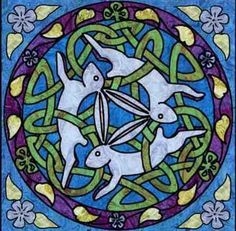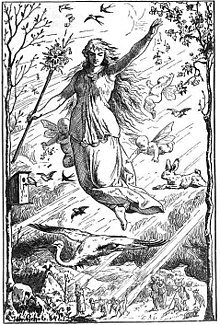Easter Customs and Traditions - Wishing You a Happy Easter!

Easter is a Christian festival and holiday commemorating the resurrection of Jesus from the dead. This is described in the New Testament as having occurred on the third day after his burial following his crucifixion by the Romans at Calvary c. 30 AD. The Old Testament and the New Testament combine to make up the Holy Bible. The Holy Bible is defined as a book believed by Christians to contain the revelations of God and is the guiding holy text of the Christian religion.
The date of the celebration of Easter is calculated based on a lunisolar calendar. In Western Christianity, using the Gregorian calendar, Easter always falls on a Sunday between 22 March and 25 April, within about seven days after the astronomical full moon. In many parts of the world following the western tradition, Good Friday, Easter Saturday, Easter Sunday and Easter Monday are celebrated with Friday and Monday being public holidays. The resurrection of Jesus, which Easter celebrates, is one of the chief tenets of the Christian faith. In both eastern and western Christian tradition the season of Pascha and Easter, respectively, continues for a number of weeks.
In Latin and Greek, this Christian celebration is called Pascha (Greek: Πάσχα). This is a word derived from Aramaic פסחא (Paskha). Historically, Aramaic was the language of the Arameans, a Semitic-speaking people of the region between the northern Levant and the northern Tigris valley. The word Easter appears to have come from the northern European Saxon Goddess Ēostre or Ostara. She was possibly equivalent to the Norse goddess Frigga. Ēostre was mentioned by the Anglo-Saxon monk Bede in his work ‘The Reckoning of Time’ written in 725AD. He wrote that Ēosturmōnaþ (Old English 'Month of Ēostre', translated in Bede's time as "Paschal month") was an English month, corresponding to April. He states that this "was once called after a goddess of theirs named Ēostre, in whose honour feasts were celebrated in that month."
There have been many Celtic folk traditions associated with Easter time. The religious importance of Easter was strictly observed. However, once devotions were completed, there were all kinds of sporting events, markets and fairs. Many of the things that we associate with Easter were also important in Celtic tradition. The hare is an animal important in Celtic belief with the Easter Bunny being derived from the hare. In the Celtic world eggs are also an ancient symbol of life force. It is said by some that ancient Celts rolled eggs downhill at Beltane, in what is thought to be an imitation of the movement of the sun. It has been suggested that the Church adapted this custom to symbolise the rolling away of the stone in front of Christ's tomb. The Celts also have the tradition, shared with others, of decorating eggs at Easter time.
Wishing you a Happy Easter in the Celtic languages:
Breton - Pask Seder
Cornish - Pask Lowen
Irish - Cáisc Shona duit/Beannachtaí na Cásca ort
Manx - Caisht sonney dhyt
Scottish (Gaelic) - A' Chàisg sona
Welsh - Pasg Hapus
Image above: Hare Triskele in Celtic design.
Image below: Goddess Ostara (1884) by Johannes Gehrts.







